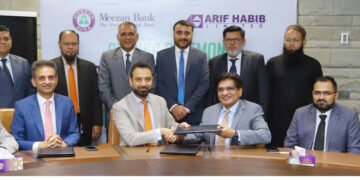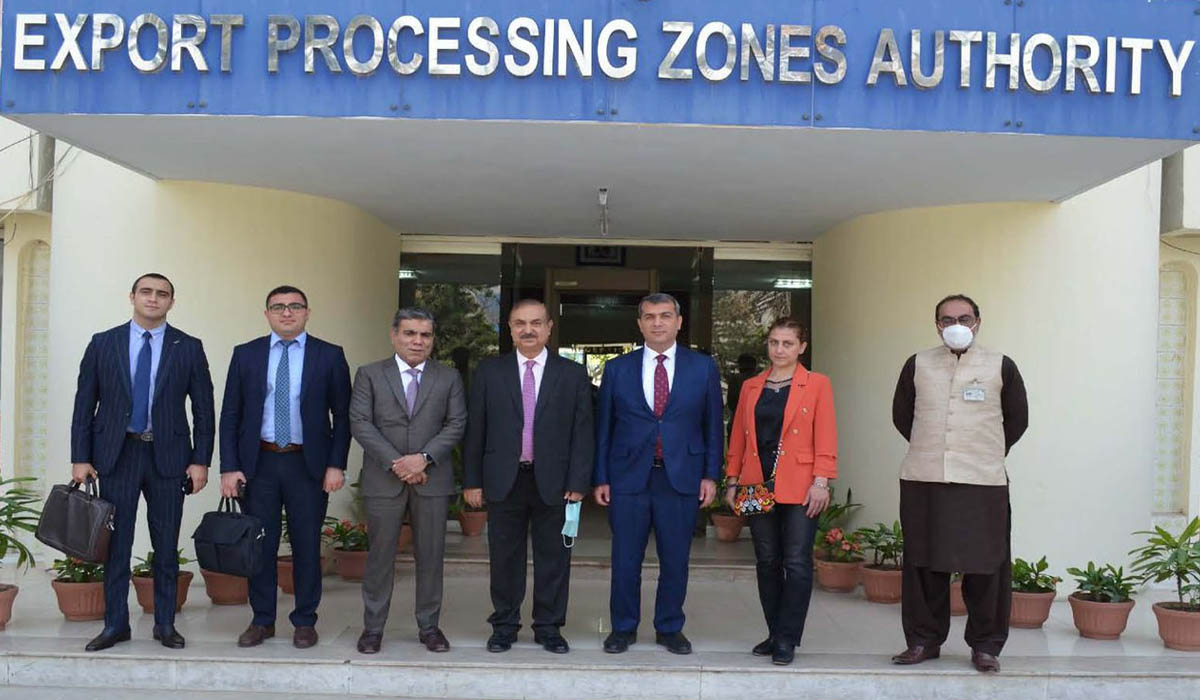KARACHI – Member National Assembly and Parliamentary Secretary, National Heritage & Culture, Ghazala H Saifee, has said that industry has an important role in improving the quality and relevance of Technical Vocational Training system and equipping expanding young population with right skills is the best solution to promote employability, reduce poverty and achieve socio economic targets.
Ghazala H. Saifee, while addressing as Chief Guest in the Award Distribution Ceremony of Skill Development Employers’ Recognition Award-2020 organized jointly by the Skill Development Council Karachi and Employers’ Federation of Pakistan to celebrate employers’ investment in skills development, added that Employers’ contribution in skills development must be encouraged and recognized at the highest level Ismail Suttar, President, Employers’ Federation of Pakistan (EFP).
The winning companies were Archroma Pakistan, Artistic Denim Mills, Artistic Milliners, Bollore’ Logistics Pakistan, Chase Up Shopping City, Dr. Essa Laboratory & Diagnostic Centre, Foundation for Urban & Rural Development, K-Electric, Lotte Chemical Pakistan, Lucky Motor Corporation, Lucky Textile Mills, Masood Textile Mills, Master Changan Motor, Master Motor Corporation, MCC Resources Development Company, OZESSA, Pak Suzuki Motor Company, Pakistan Petroleum Limited, Perfect Transport Network, Procon Engineering, Shabbir Tiles and Ceramics, The General Tyres & Rubber Company, Unit52 Private, Aman Institute for Vocational Training, Ishrat’s Salon, Memon Industrial & Technical Institute, The Hunar Foundation, SZABIST-ZABTech (iTVE).
Ghazala H. Saifee added that the Government has attached high priority to skills development and initiated number of technical vocational training programmes to develop and upgrade the skills of our workforce but this challenging task of providing right skills cannot be achieved without the support of industry / private sector.
Ismail Suttar, President, Employers’ Federation of Pakistan, said that the availability of skilled people with requisite skills and technical competence is important for productivity and industrial growth but the supply driven TVET System is not producing a workforce as per needs of the labour market.
He said, “Employers has to rely on their own training programme for training of potential and existing employees and making significant contribution in skills development. He said, EFP considers that the contribution and investment of employers in skills development must be recognized at the highest level of skill development. Employers Recognition Awards has been launched to recognize employers ‘contribution in promoting need-based skills development programmes which will not only encourage them to further invest in skills development of their employees but will also motivate other employers. He added investment in skills development of employees is in the benefit of industry and help increasing productivity and enterprise competitiveness.
Iris Cordelia Rotzoll, Head, TVET Sector Support Programme, which is funded by the European Union, the Federal Republic of Germany and the Royal Norwegian Embassy, said employers or private sector play a vital role in any country when it comes to skills development. I am happy to be part of this important occasion when the efforts of employers are recognized which they have played in promoting skills development and I hope to see further collaboration in future.
Ahsan Ullah Khan, Chairman, Skill Development Council (SDC) Karachi in his welcome address said the SDC was established to make the skills development programs effective, flexible and demand driven with the maximum involvement of industry. He added that in countries with develop TVET System employers have been provided meaningful role by establishing institutional and legal framework. Unfortunately, in Pakistan public sector is shy to engage industry and share their powers with private sector.
Sharing the achievements and contribution of Skill Development Council Karachi, Syed Nazar Ali, CEO, SDC Karachi said the Council with the support of Employers and Trade Unions has been very successful in catering to the need of human capital development and establishing missing links between industry and institutions.
















